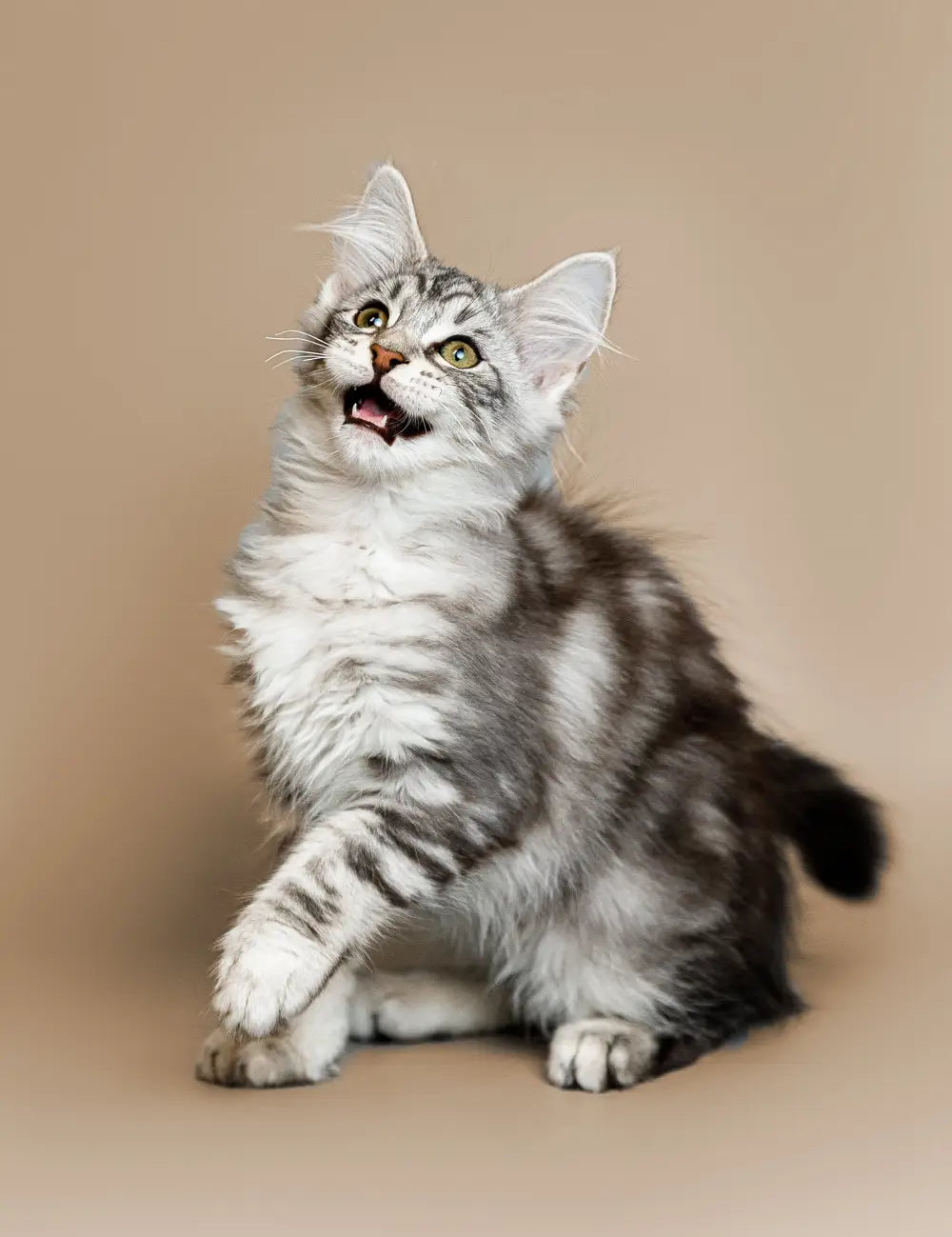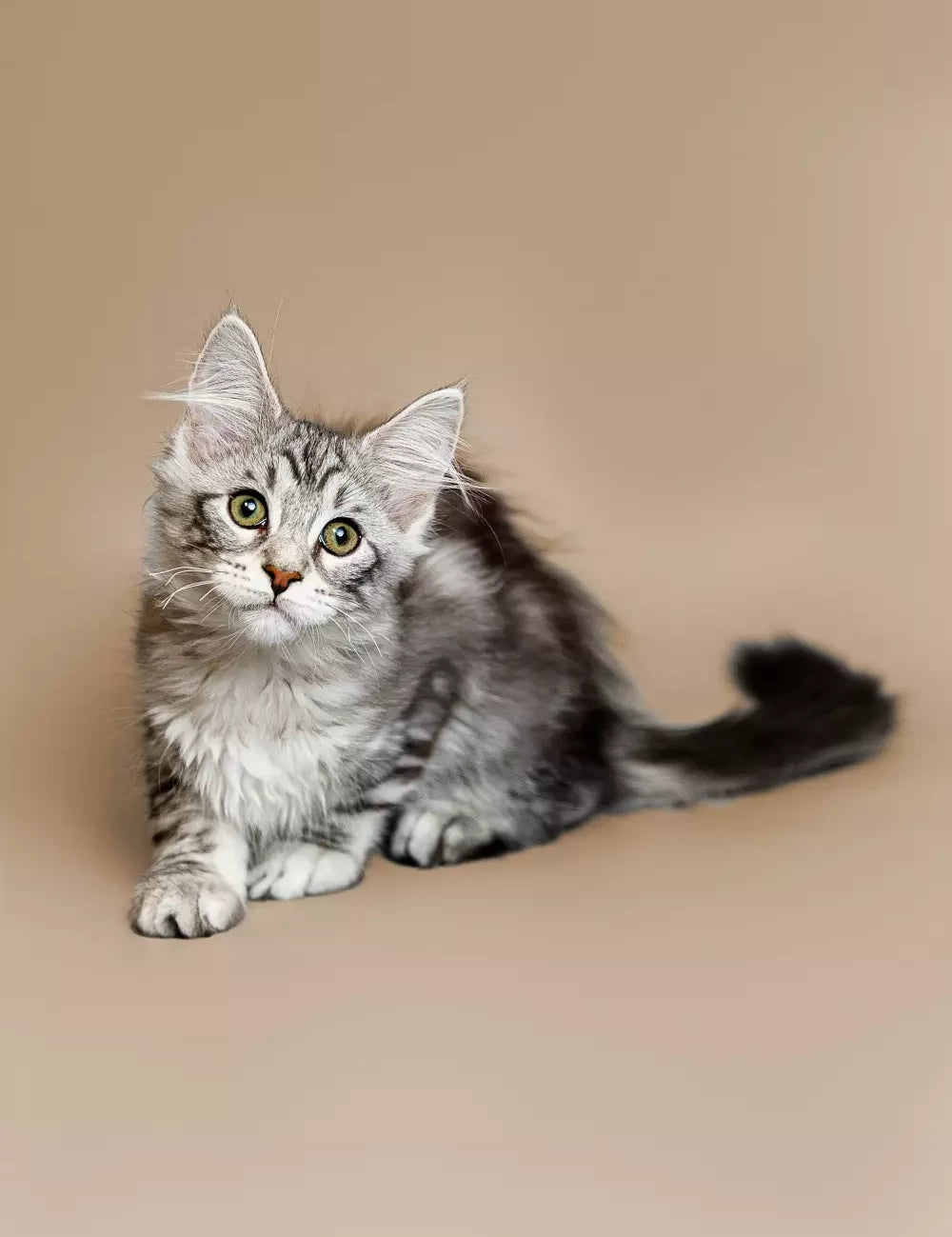What is the Temperament of a Maine Coon?

Introduction
Maine Coons are known for their impressive size, friendly demeanor, and striking appearance. If you're considering bringing one of these magnificent cats into your home, it's important to understand their temperament to ensure a harmonious relationship. In this article, we'll delve into the unique personality traits that define the Maine Coon breed. Maine Coons are often referred to as the "gentle giants" of the feline world. Their large size and friendly disposition make them a popular choice for families seeking an affectionate companion.
Origin and History
Originating in the northeastern United States, Maine Coons have a rich history intertwined with folklore. They are believed to be descendants of seafaring cats, which contributed to their robust and adaptable nature.
Physical Characteristics
With tufted ears, bushy tails, and a substantial build, Maine Coons are easily recognizable. Their water-resistant fur and thick double coat are adaptations to the harsh New England climate.
Intelligence and Trainability
Maine Coons are highly intelligent cats. They can be trained to perform tricks and even enjoy interactive puzzle toys that stimulate their mental faculties.
Social and Affectionate Nature
One of the most endearing qualities of Maine Coons is their affectionate nature. They are known for forming strong bonds with their human family members and are often described as "dog-like" in their loyalty.
Playfulness and Activity Level
Despite their size, Maine Coons are playful and active cats. They enjoy interactive play sessions and will happily chase toys or engage in games of hide-and-seek.
Communication Style
Maine Coons are not known for being overly vocal, but they are not silent either. They may chirp, trill, or let out soft, melodic meows to communicate their needs or desires.
Compatibility with Other Pets
Due to their friendly disposition, Maine Coons tend to get along well with other pets, including dogs. They are social creatures that thrive in a multi-pet household.
Grooming Needs
Regular grooming is essential to keep a Maine Coon’s coat in top condition. Their long fur can become tangled, so a thorough brushing a few times a week is recommended.
Health Considerations
While generally healthy, Maine Coons may be prone to specific genetic conditions such as hip dysplasia and spinal issues. Regular veterinary check-ups are crucial for maintaining their well-being.
Common Misconceptions
Contrary to popular belief, Maine Coons are not wild or aggressive. They are gentle and friendly cats that can adapt well to indoor living.
Ideal Living Environment
Maine Coons thrive in homes with ample space to roam and play. They enjoy having access to windows for bird watching and may even take an interest in water, so a shallow water source can be a source of entertainment. Explore the unique traits and essential care tips for Maine Coon-Ragdoll mixes in this informative guide. For in-depth insights, visit Purebred Kitties Academy: Read the article here.
Frequently Asked Questions
- What is the average lifespan of a Maine Coon?
The average lifespan of a Maine Coon is around 12-15 years, but with proper care, some can live into their late teens or early twenties.
- Do Maine Coons get along with children?
Yes, Maine Coons are generally good with children. They are patient and gentle, making them suitable companions for families.
- How do I groom a Maine Coon?
Grooming a Maine Coon involves regular brushing to prevent matting and the occasional bath. Additionally, attention should be given to their ears and teeth.
- Are Maine Coons prone to any specific health issues?
While generally healthy, Maine Coons can be prone to genetic conditions like hip dysplasia and spinal issues. Regular veterinary check-ups are important.
- Can Maine Coons be left alone for extended periods?
While they are independent to some extent, Maine Coons thrive on social interaction. It's best to have a companion or arrange for playtime if you'll be away for long periods.
- Tags: maine coon cat












